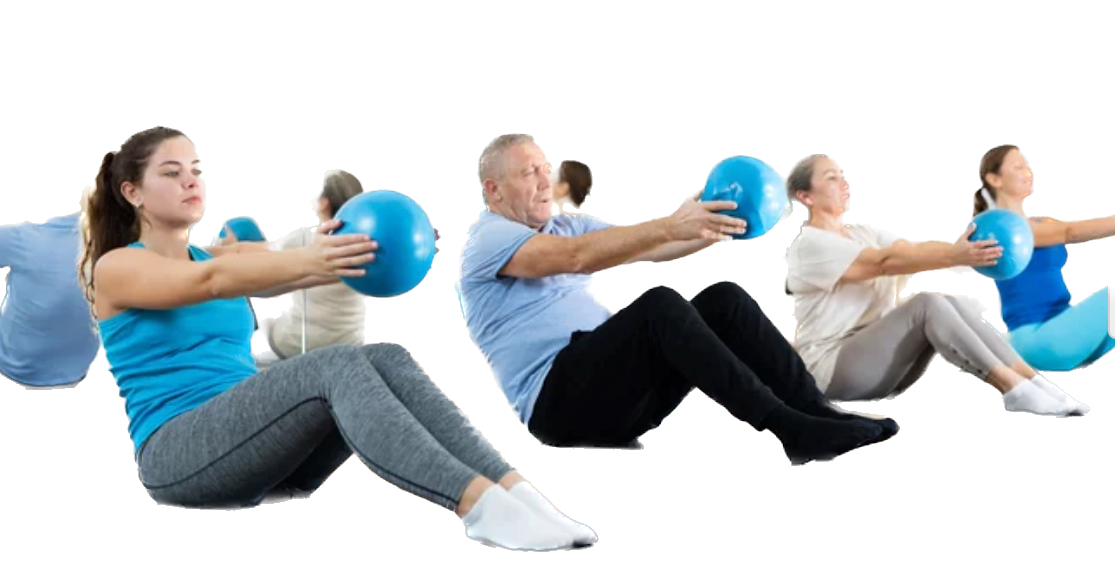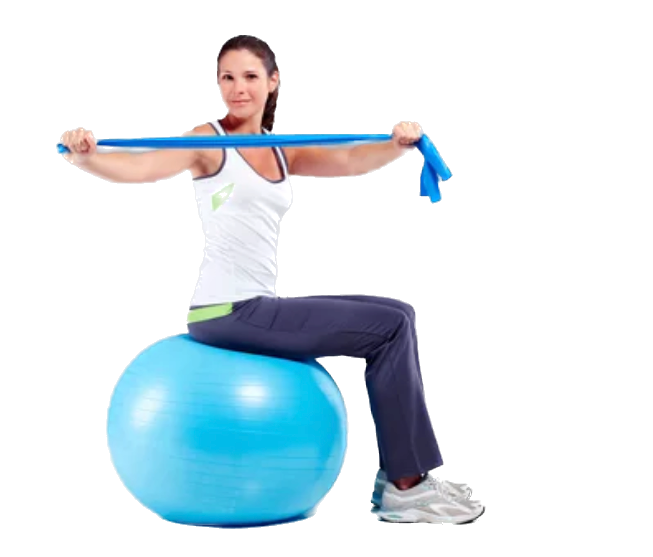ULTIMATE GUIDE TO NECK PAIN PREVENTION AND TREATMENT
CAUSES, SYMPTOMS, AND PHYSIOTHERAPY TREATMENTS
Neck pain is a common condition that affects many people. It can be caused by a variety of factors, including poor posture, injury, stress, and underlying medical conditions. Neck pain can range from mild discomfort to severe pain, and it can have a significant impact on a person’s quality of life. In this blog post, we will discuss the causes and symptoms of neck pain and the physiotherapy treatments available to help manage it.
CAUSES OF NECK PAIN: There are many potential causes of neck pain, including:
- Poor posture: Poor posture, such as hunching over a computer or smartphone, can put a strain on the neck muscles and lead to pain. Poor posture is a common cause of neck pain, particularly in people who spend long periods of time sitting at a desk or using electronic devices. When the head is held forward and the shoulders are slouched, it can put strain on the muscles and joints in the neck, leading to pain and stiffness. Poor posture can also cause headaches and shoulder pain.
Some of the factors that contribute to poor posture and neck pain include:

- Spending long periods of time sitting: When you sit for long periods of time, your muscles can become fatigued, which can lead to poor posture and neck pain.
- Using electronic devices: Looking down at a phone, tablet, or laptop for long periods of time can cause strain on the neck muscles and joints.
- Poor ergonomics: Using a poorly designed chair or desk can lead to poor posture and neck pain.
- Stress: When you are stressed, you may hold tension in your neck and shoulders, which can lead to pain and stiffness.
- Lack of exercise: A lack of exercise can weaken the muscles in the neck and back, making it more difficult to maintain good posture.
- Injury: Injuries such as whiplash or a muscle strain can lead to poor posture and neck pain.
To prevent neck pain caused by poor posture, it is important to maintain good posture throughout the day. This includes sitting with your shoulders back and your head aligned with your spine. You should also take frequent breaks from sitting and stretch your neck and shoulders regularly. If you are experiencing neck pain, it is important to consult with physiotherapist in Delhi to determine the underlying cause and develop an appropriate treatment plan.
- Injury: Injuries to the neck, such as whiplash from a car accident or a sports injury, can cause neck pain. An injury to the neck can occur due to a variety of reasons, including whiplash from a car accident, a sports injury, a fall, or any other trauma that causes the neck to be suddenly jerked or twisted. Injuries can cause muscle strains or tears, damage to ligaments or tendons, or even fractures or dislocations of the vertebrae in the neck.
It is important to seek medical attention immediately if you experience neck pain after an injury, as certain types of injuries, such as a fracture or dislocation, require prompt medical attention to prevent further damage. A healthcare professional or physiotherapist can perform a thorough evaluation to determine the extent of the injury and develop a treatment plan that may include physiotherapy, pain management, or even surgery in some cases.
- Arthritis: Arthritis is a condition that causes inflammation and pain in the joints, and it can affect any joint in the body, including the neck. There are several types of arthritis that can cause neck pain, including:
Osteoarthritis: This is the most common type of arthritis, and it occurs when the protective cartilage in the joints wears down over time. As the cartilage wears down, the bones in the joint can rub against each other, causing pain, swelling, and stiffness. Osteoarthritis can occur in the neck, causing pain and stiffness in the neck and shoulders.
Rheumatoid arthritis: This is an autoimmune disease that causes inflammation in the joints, leading to pain, stiffness, and swelling. Rheumatoid arthritis can affect the joints in the neck, causing pain and stiffness in the neck and shoulders.
Cervical spondylosis: This is a type of arthritis that affects the neck and is caused by wear and tear on the vertebrae in the neck. As the vertebrae wear down, they can put pressure on the nerves in the neck, causing pain, numbness, and weakness in the arms and hands.
- Muscle strain: Overuse or strain of the neck muscles can cause pain. Strained muscles in the neck can occur due to a variety of reasons, including poor posture, overuse, or injury. Strained muscles can cause pain and discomfort in the neck, as well as limited range of motion and stiffness.
- Herniated discs: When the discs in the spine become herniated or damaged, they can put pressure on the nerves in the neck and cause pain. The discs in the spine act as cushions between the vertebrae, allowing for flexibility and shock absorption. When a disc becomes herniated, it means that the soft inner material of the disc has pushed through the outer layer and is pressing on the surrounding nerves. This can cause pain, numbness, and weakness in the neck and arms.
- Degenerative disc disease: The natural aging process can cause the discs in the spine to wear down, leading to pain. Degenerative disc disease refers to the wear and tear on the discs in the spine that occurs naturally with age. As the discs degenerate, they can lose their ability to cushion the vertebrae, leading to pain and discomfort in the neck.
SYMPTOMS OF NECK PAIN: The symptoms of neck pain can vary depending on the cause and severity of the condition. Some common symptoms of neck pain include:
- Stiffness: The neck may feel stiff, making it difficult to turn the head.
- Pain: Pain in the neck that may be sharp or dull.
- Headaches: Neck pain can sometimes cause headaches.
- Tingling or numbness: Tingling or numbness in the neck or arms.
- Weakness: Weakness in the arms or hands.
PHYSIOTHERAPY TREATMENTS FOR NECK PAIN:
Physiotherapy can be an effective treatment for neck pain. A physiotherapist will work with the patient to develop a treatment plan tailored to their individual needs. Here are some physiotherapy treatments that may be used to manage neck pain:
- Manual therapy: Manual therapy techniques, such as joint mobilization, can help relieve tension and pain in the neck muscles.
- Exercise: Stretching and strengthening exercises can help improve neck mobility and reduce pain.
- Posture correction: A physiotherapist can provide guidance on proper posture and ergonomics to help prevent neck pain.
- Heat and cold therapy: Heat and cold therapy can help reduce inflammation and relieve pain.
- Electrical stimulation: Electrical stimulation can be used to help relieve muscle tension and pain.
- Ultrasound therapy: Ultrasound therapy uses high-frequency sound waves to promote healing and reduce inflammation.
- Laser therapy: Laser therapy uses light energy to penetrate deep into the tissues of the neck. This treatment can help promote healing, reduce inflammation, and relieve pain. During the treatment, a handheld device is placed over the affected area, and the laser light is delivered to the tissues.
- Advanced manual therapy: Advanced manual therapy techniques, such as joint mobilization, manipulation, is effective in managing neck pain. These techniques involve applying gentle pressure and manipulation of the joint, the muscles and tissues in the neck to relieve tension and promote healing.
- Craniosacral therapy: Craniosacral therapy involves the use of gentle touch to manipulate the bones and tissues of the skull and spine. This technique can help release tension and improve the flow of cerebrospinal fluid, which can help reduce pain and improve function.
- Myofascial release: Myofascial release involves the use of sustained pressure to release tension in the fascia, a connective tissue that surrounds the muscles and organs in the body. This technique can help relieve pain and improve mobility in the neck and other areas of the body.
Neck pain can have a significant impact on a person’s quality of life, but with the right treatment, it is possible to manage the condition effectively. In addition to the physiotherapy treatments mentioned earlier, laser therapy and advanced manual therapy can be effective in managing neck pain. If you are experiencing neck pain, it is important to consult with best physiotherapist in Delhi to determine the underlying cause and develop an appropriate treatment plan that includes a combination of these advanced therapies.





